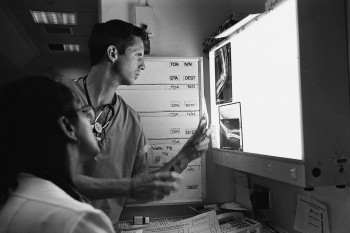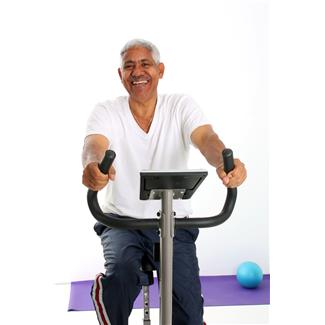Osteoporosis Diet & Nutritional Strategies for Dense Bone Formation

Osteoporosis Diet & Bone Formation
The American diet is turning our bones into powder. The
osteoporosis diet information listed below will give you a major head start
to prevent bone disease. This page lists various foods that naturally build very powerful bone tissue, and lists what foods actually cause bone loss.
Our Bones Are Meant to Last a Lifetime
With age, human bone can
thin somewhat, but our bone structure is still meant to be able to
withstand the rigors of daily living. On this page, we illustrate how to implement an anti osteoporisis diet by eating whole foods in their original, unprocessed form.
Advertisement
Osteo Means Bone
Let's start with the basics first. osteo means bone, porosis means porous. The word porous means pores or having holes.
With osteoporosis, the bones become thin and porous.
Osteoporosis is the gradual thinning of bone mass.
The human body
consists of 206 bones. Bone is living tissue that changes constantly. Each and every atom in
our bone tissue is being replaced every three months.
Bone tissue is the hardest tissue in the human
body. Rib cage bones protect the heart and lungs, and of course the
skull cap protects the brain from injury.
This Osteoporosis Video Shows Exactly How
Bone Tissue is Made
The Osteoporosis Diet Connection
Sodas: Phosphorus is added into sodas, which completely throws off our calcium balance. Phosphorus is needed to form bone, but it's added into many processed foods, especially sodas. This creates an imbalance that causes bone to be lost as a result.
Caffeine: Caffeine interferes with calcium absorption and causes the excretion of calcium from the body through the urine.
Sugar: Sugar eats through bone and skin tissue. Sugar is devoid of all nutrients. Because of this, for sugar to be metabolized, it draws on mineral reserves from bone mass. Another excellent reason to avoid sugar, sodas and soft drinks.
Yeast: Yeast products are high in phosphorus and competes with calcium for absorption by the body.
Protein: The more protein we eat, the more calcium we
lose. Protein can disrupt the balance between phosphorus and calcium,
which is very important for healthy bones. Although we need protein in
our diets, it is always important to remember to balance carbohydrates,
fats, and proteins.
Alcohol: Heavy alcohol drinkers statistically have
more fractures. Alcoholics who are autopsied after death have bones
that look many decades older than their chronological age. Alcohol severely damages bone tissue.
Alcohol damages the liver. The liver is very important for metabolizing Vitamin D. Vitamin D is a critical nutrient for bone formation. Alcohol is toxic to bone cells, causing damage to the inner spongy (trabecular) bone.
Another reason alcohol contributes to bone loss is that
alcoholics are oftentimes malnourished, which creates further bone loss
due to a lack of important minerals in the diet.
Medications: Different types of medications can cause osteoporosis: Corticosteroids, thyroid hormones, and antibiotics are some examples.

Click here to read to Surgeon General's Report on osteoporosis.
Osteoporosis Diet & Vitamin D
Making bone tissue is a complicated process. Many nutrients are needed for maximum bone support.
Vitamin D and magnesium are key players in bone health. If your
body does not have enough vitamin D, it can't absorb calcium into the
bone structure. Most of the Vitamin D your body makes comes from exposure to
sunlight. Twenty minutes in the sun every day day gives you enough Vitamin D for that
day.
Deficiencies of Vitamin D can lead to osteomalacia, which is softening of
bones. Vitamin D needs fat to be better absorbed by your body.
Food Loaded With Vitamin D
- Fortified Milk
- Fortified breads
- Fortified cereals
- Tuna
- Fish-liver oil
- Sardines
- Salmon
- Herring
- Egg Yolk
Click here for Super Foods That Prevent Bone Loss
If you eat a high protein diet, it's very important to get enough folate in your diet. Folate assists in the break down of homocysteine. Homocysteine is created by the breakdown of protein. Homocysteine interferes with the construction of bone. Protein is an essential nutrient, but too much can create an imbalance.
All foods containing protein leaves an acidic residue in the blood. This condition can lead to bone decay. If your diet is balanced with alkaline-generating foods like fruits and vegetables, then the acidic condition is neutralized and the protein has no effect. As with anything related to diet, balance is everything.
Advertisement
Osteoporosis Diet & Folate for Your Bones
Folate is important for forming bone tissue. The RDA recommends 400 micrograms of folate daily.
Caution: If you are taking aspirin, it can interfere with the level of folate in your system.
Osteoporosis Diet Folate List:

Osteoporosis, Diet & Calcium
Although Calcium is critically important in the creation of the bone matrix, there are numerous nutrients needed to promote bone tissue development. Taking calcium alone will not improve bone density.
Your body needs the correct balance of magnesium, boron, potassium, zinc, folic acid (folate), Vitamins C, D, E and K. We will delve into a complete list of important nutrients and trace minerals to insure a sound osteoporosis diet.
Manganese: This trace mineral is need to form
bone. Many women who are experiencing osteoporosis are deficient in
manganese. If you are deficient in manganese, it can create bone loss. Manganese can be found in pineapples, beans, spinach, nuts and seeds.
Vitamin K: Vitamin K is a lesser known vitamin. It is created by the presence of friendly bacteria in the gut. Many studies point to the fact that Vitamin K stops or slows down bone loss.
Vitamin K is important to produce bone protein. Vitamin K rich
food sources are green, leafy vegetables such as kale, spinach,
collards, Brussels sprouts and broccoli and liver. Are you beginning to
see that dark green leafy vegetables need to be in your diet every day?
Green leafy vegetables protect every system in the body, including bone
tissue.
Boron: Boron is a magic bullet for an osteoporosis diet and
bone health. Getting enough boron is critical to bone health because it
slows down the excretion of calcium from the body. If you're not
getting enough boron, you can potentially lose both magnesium and
calcium from your system, both of which are critical to bone health.
Boron rich foods are almonds, apples, strawberries, peaches cabbage, tomatoes, asparagus and beets, avocados, celery and cashews. You need about 3 mg's of boron per day.
Zinc: Zinc is a co-factor in over 200 enzyme reactions in your body. Zinc is necessary for proper calcium absorption. Zinc is important for bone healing.
If you are deficient in zinc, you cannot fully absorb calcium.
Your body needs zinc to metabolize the protein/collagen matrix used in
bone formation. Oysters, legumes, roast beef,
pumpkin seeds and lamb are great sources of zinc.
Vitamin B Complex: Vitamin b plays a crucial role in bone Formation. Vitamin B complex gives durability to the protein inside bone tissue.
Copper: Copper aids in the formation of bone.
Potassium: Potassium is needed to counterbalance a high acid diet. Potassium has also been shown to increase bone matrix and greatly helps to reduce calcium in your urine.
Calcium: Low calcium intake early in life is the single biggest preventable risk factor for bone loss. Your body has more calcium than any other mineral in the body. Bone tissue is a mineral compound which is inside of a living protein matrix.
The New England Journal of Medicine reported on a study proving that calcium supplementation can reduce fractures by 30 to 70 percent. Adults over 25 need 800 mg's of calcium, and pregnant and lactating women need 1,200 mg's.
When taking calcium supplements, check the label for elemental calcium. Elemental calcium is readily absorbed by the body.
Vitamin C: Vitamin c forms and repairs cartilage, collagen, and other components of bone. Vitamin C increases calcium absorption. Lack of Vitamin C in our diets can cause scurvy which can sometimes be accompanied by bone abnormalities.
Excellent Sources of Vitamin C Include:
- Asparagus
- Avocado
- Berries
- Broccoli
- Black Currants
- Brussels sprouts
- Grapefruit
- Mangoes
- Mustard greens
- Onions
- Oranges
- Persimmons
- Pineapple
- Radishes
- Spinach
- Strawberries
- Swiss Chard
- Tomatoes
- Turnip greens
- Lemons
- Oranges
Anti Osteoporosis Diet: List of High Calcium Foods:
- Broccoli
- Cheese
- Dark green leafy vegetables
- Citrus fruits
- Kale
- Turnip greens
- Asparagus
- Avocado
Broccoli
- Brussels sprouts
- Grapefuit
- Mangoes
- Mustard greens
- Milk
- Onions
- Oranges
- Persimmons
- Pineapple
- Radishes
- Spinach
- Strawberries
- Swiss Chard
- Tomatoes
- Turnip greens
- Oranges
- Yogurt
Advertisement
Sheree Gilkey is a participant in the Amazon Services LLC Associates Program, an affiliate advertising program designed to provide a means for sites to earn advertising fees by advertising and linking to amazon.com

